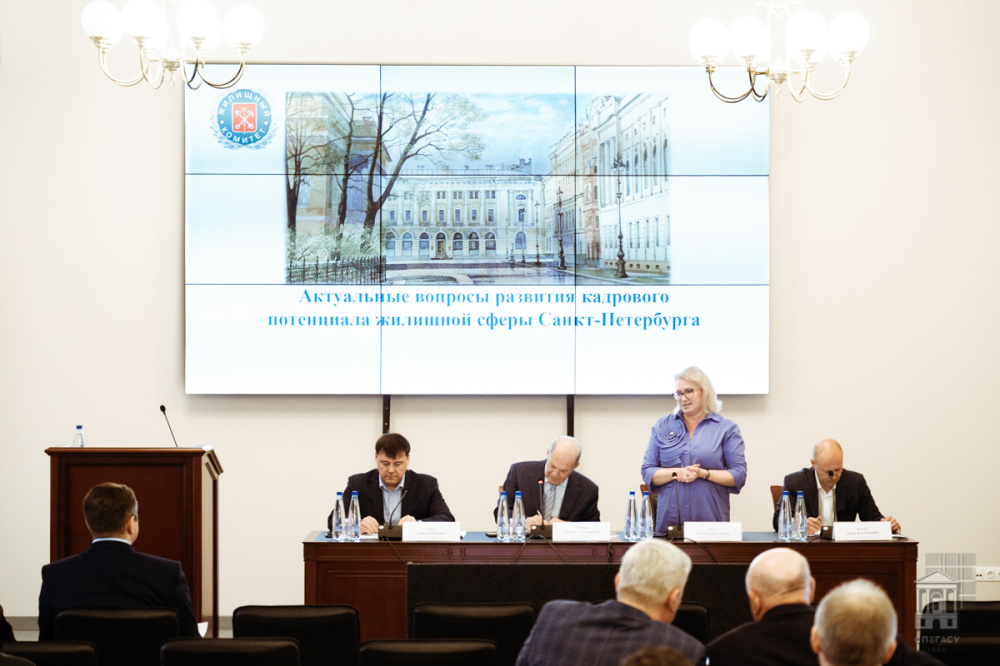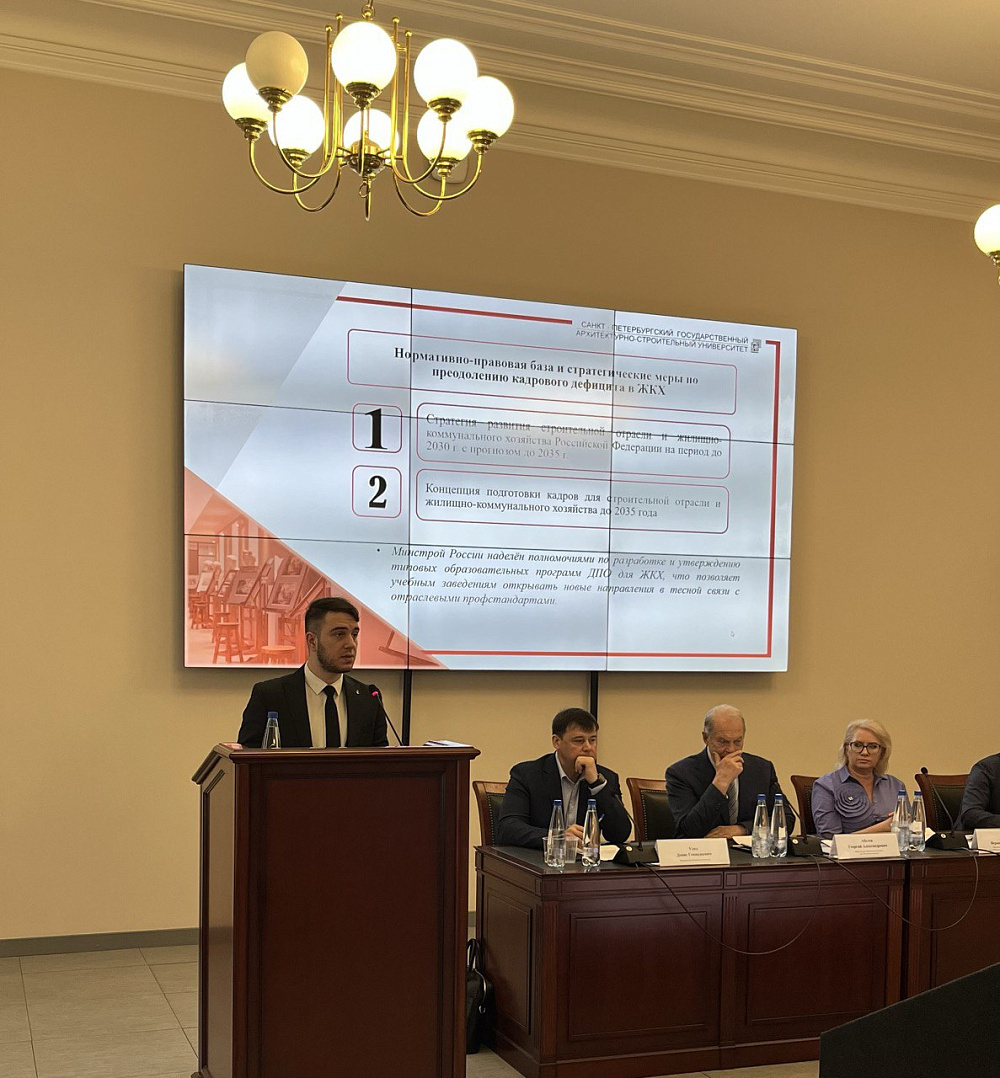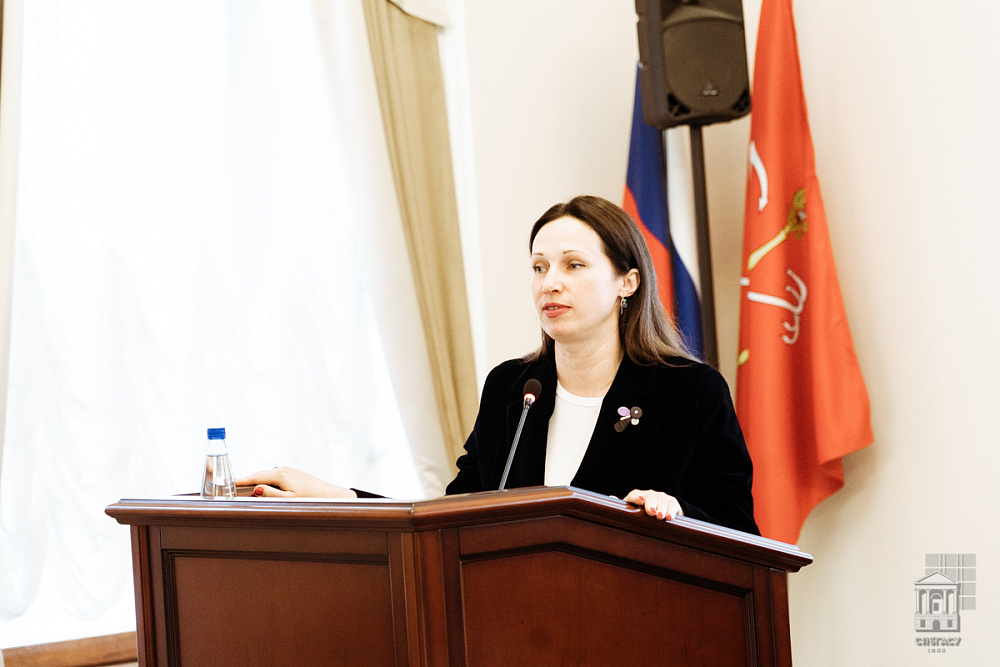 Denis Udod, Georgy Abelev, Veronika Asaul and Yury Kozlov
Denis Udod, Georgy Abelev, Veronika Asaul and Yury Kozlov
On 22 May, SPbGASU hosted a meeting of the public council under the Housing Committee of the Government of St Petersburg on the topic of "Searching for and revealing the personnel potential of the city's housing sector." The presidium of the meeting included the Chairman of the Housing Committee Denis Udod, the Chairman of the public council under the Housing Committee Georgy Abelev, the Head of the SPbGASU Department of Construction Economics and Housing and Utility Infrastructure Veronika Asaul and the executive secretary Yury Kozlov.
Head of the Department for Civil Service and Personnel of the Housing Committee Elena Mayevskaya spoke about current issues in the development of human resources in the housing sector of the Northern capital. The main emphasis is on measures aimed at attracting and retaining highly qualified personnel, especially in the field of cleaning urban areas and servicing housing stock. One of the key aspects is the development of a system of material and non-material incentives, including the establishment of competitive wages for janitors and machine operators, as well as improving working and rest conditions. The speaker noted the desire of the St Petersburg authorities to ensure the stable functioning of the housing sector through an integrated approach to human resource management, including material compensation, professional development and the creation of attractive working conditions.
Director of the St Petersburg State Budgetary Educational Institution of Additional Professional Education "Educational and Methodological Center of the Housing Committee" Valery Sapozhnikov spoke about the activities of the center. An important point is the calculation of the required number of specialists undergoing retraining, and the actual training indicators for the previous period. The need for an annual increase in the number of students, the introduction of modern technologies and quality standards is noted, which will improve the efficiency of work in the housing sector. In addition, priority tasks are outlined, including expanding the range of educational services, holding seminars and conferences, introducing innovative approaches to training and practical application of knowledge. Particular attention is paid to the creation of a training center of competencies, which will become a platform for the exchange of experience, scientific research and the introduction of advanced technologies.
Isa Magerramov, a PhD student at the Department of Construction Economics and Housing and Utility Infrastructure at SPbGASU, spoke about the personnel shortage in the housing and public utilities sector of St Petersburg, noting the acute shortage of qualified specialists and the fact that the current personnel training system is not effective enough and needs deep reform.
Isa Magerramov reported that one of the responses to the personnel shortage in the housing and utilities sector was the opening of a specialized program in “Housing and Utilities Economics” at SPbGASU within the educational program 38.03.01 Economics.
"To solve personnel problems, it is necessary to form a new type of specialist who will have both technical and economic competencies required for effective management of the housing and utilities sector. To achieve this goal, a systematic approach is needed with a focus on modernizing the educational system, developing interdisciplinary competencies, interacting with employers and supporting young specialists, which will allow us to prepare competent professionals who are in demand on the labor market," he noted.
The postgraduate student added: one of the promising areas that contributes to the formation of in-demand management and economic competencies for the effective development of the housing and communal services sector in St Petersburg is the integration of the scientific potential of SPbGASU, professional standards and new educational solutions.
The participants of the meeting came to a unanimous opinion on the need for a systemic and interdepartmental approach to solving the problem of personnel shortage in the housing sector. It was decided to continue close cooperation between the Housing Committee, educational organizations and employers in the industry.



